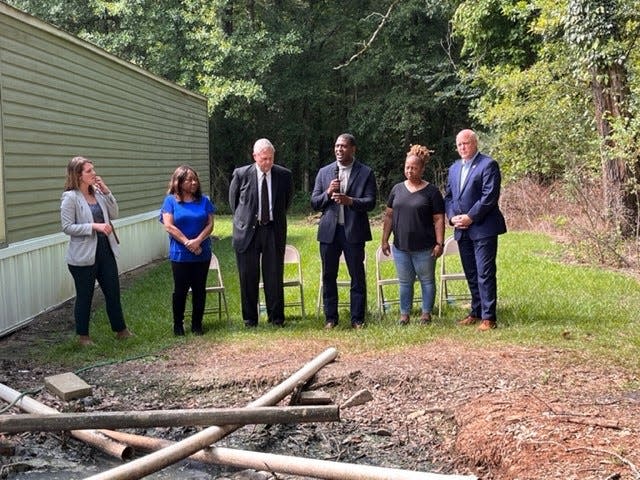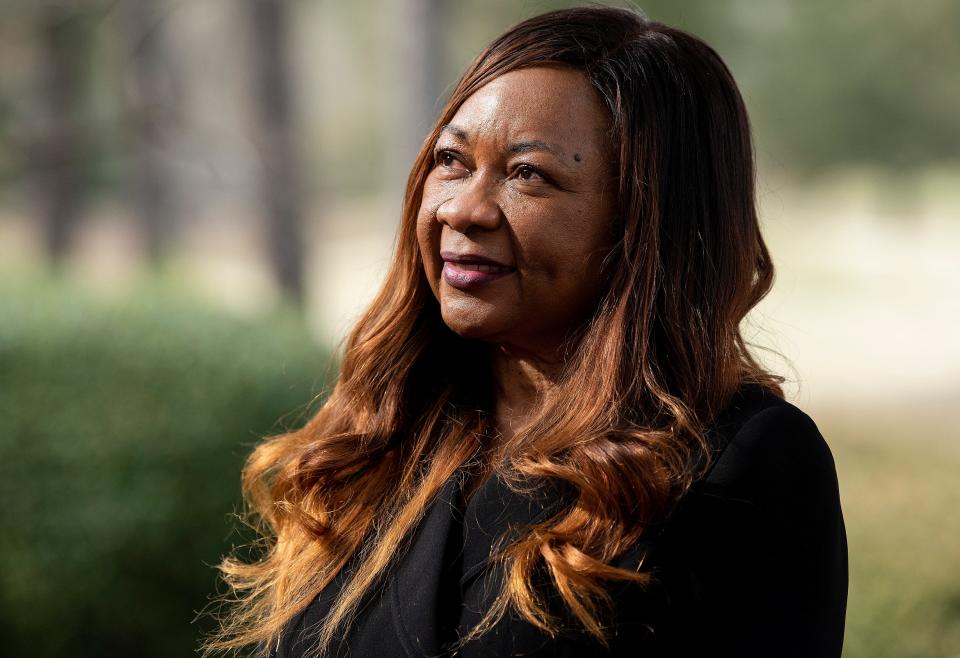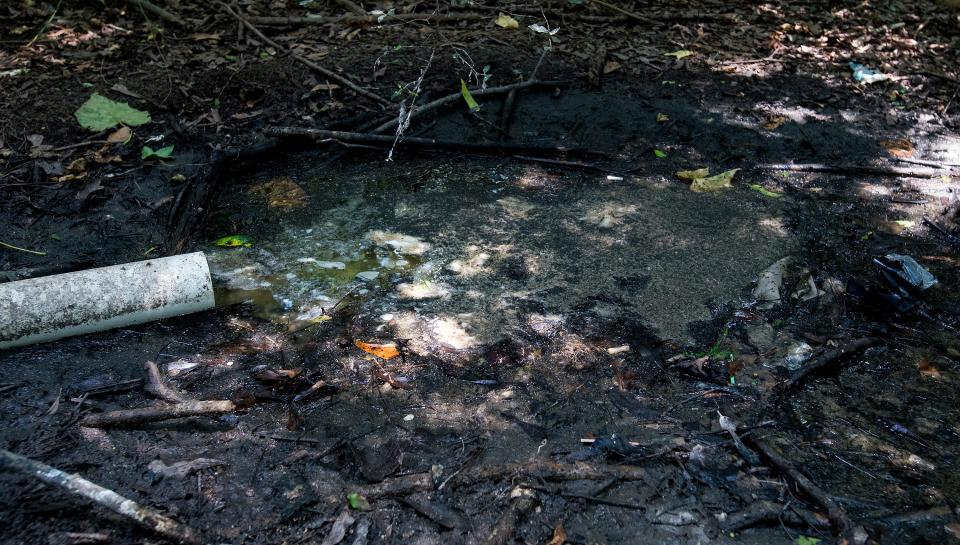Biden administration pledges support for Lowndes County wastewater solutions amid sewage crisis
- Oops!Something went wrong.Please try again later.
“I’m tired,” Hayneville resident Charlie Mae Holcombe said.
She sat in a crowded town hall on Tuesday, surrounded by other residents of Lowndes County, Black Belt mayors and leadership from the U.S. Environmental Protection Agency, the U.S. Department of Agriculture and the White House.
They were there to discuss the lack of wastewater infrastructure in the county, and how it is so badly needed that PVC pipes stand in for adequate plumbing and puddles of sewage pool in people’s backyards.
Holcombe has lived in her home for decades, and she said she’s been fighting the sewage problem in Lowndes since 1987. Even with millions of dollars in federal and state funding directed to wastewater infrastructure in the region during that time, she said little has changed.
“Still, nothing has been done for my problem. I’m dealing with it, and I’m just praying to the Lord that something’s going to come out of this,” Holcombe said. “I’m telling you, so much money is coming in here, and the people that really need it are not getting it.”
Previous coverage: The rural South’s invisible public health crisis
Read this: Wastewater treatment is a problem in the rural South. Who is working to fix it?
Leaders in President Joe Biden's administration say this time is different.
EPA Administrator Michael Regan, USDA Secretary Tom Vilsack and White House Infrastructure Coordinator Mitch Landrieu traveled to Lowndes this week to announce the Closing America’s Wastewater Access Gap Community Initiative. It is a pilot program that will operate in 11 communities across the country to secure federal funding and install adequate wastewater infrastructure like indoor plumbing and sewage systems.
“Too many people have waited far too long for the government to actually work,” Vilsack said at Tuesday’s gathering. “I am going physically back to Washington, but I’m staying here mentally. We have to rebuild trust in government.”

In addition to Lowndes County, the initiative will also launch in Greene County, Alabama, and other areas in Mississippi, North Carolina, New Mexico, Kentucky, West Virginia and Arizona.
The USDA and the EPA plan to help these communities make use of $11.7 billion in loans and grants the Bipartisan Infrastructure Law made available for wastewater projects.
An estimated 2.2 million people in the United States lack basic running water and indoor plumbing, according to the USDA, and these inadequacies put their health at risk.
In Lowndes County, doctors and researchers found a surge in poverty-related tropical diseases like hookworm and toxocariasis over the past decade.
Previously: Black Belt wastewater program launches new element of its solution to the sewage crisis
Dive deeper: Rural Alabama wastewater infrastructure 'public health issue' gets much-needed attention
Environmental activist Catherine Coleman Flowers brought researchers to the area in 2013 to mount a peer-reviewed study that assessed whether residents had contracted parasitic infections arising from raw sewage. In a sample of 55 adults, they found about 35% tested positive for hookworm — though the Alabama Department of Public Health has disputed the study.

Flowers grew up in Lowndes and started advocating on behalf of her community about two decades ago. She is now a member of Biden’s inaugural Environmental Justice Advisory Council, and she attended the USDA and EPA events this week.
“We’re almost at the end of a nightmare we’ve been dealing with for a very, very long time as it relates to sanitation,” Flowers said. “When I started doing this work, people didn't even acknowledge that there was a sanitation problem in the United States. They thought this was somewhere else.”
As Flowers talked to reporters behind the home of Hayneville resident Aquilla Grant, she looked over a pool of raw sewage. Without access to municipal sewage or a working septic tank, Grant “straight-pipes” her sewage out of her home with PVC pipes.

Nonprofits like the Black Belt Unincorporated Wastewater Program have led the charge with solutions in the last year, and they have already begun installing sewage systems for homes in need. Through more government support, though, residents are hopeful that solutions will become more efficient and widespread.
“Just to see this get fixed,” Grant said, “I will be grateful.”
Other Lowndes residents brought up concerns of how long it will take to access the federal funding, how the money will get to the homes that need it, and whether the local governments have the support to enact solutions efficiently.
Still, everyone agreed on one fundamental fact: No Americans should have to deal with raw sewage in their backyards.
Hadley Hitson covers the rural South for the Montgomery Advertiser and Report for America. She can be reached at hhitson@gannett.com. To support her work, subscribe to the Advertiser or donate to Report for America.
This article originally appeared on Montgomery Advertiser: Lowndes County's waste crisis: Biden admin commits to finding solution

